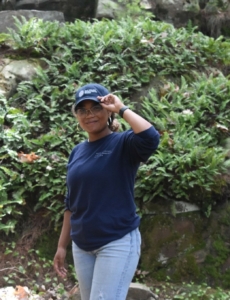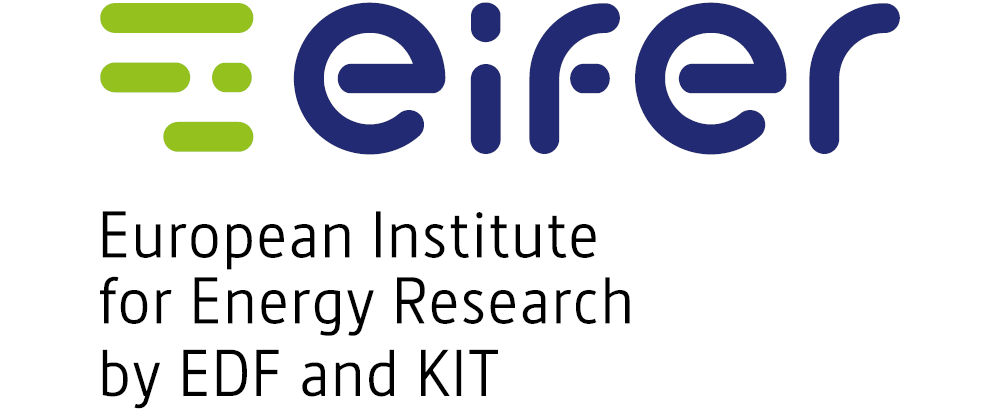Congratulations to Ms Aishah Nyeta Brown and Ms Epongue Ekille on their successful completion of the Global Sustainability Scholarship (GSS)

Aishah Nyeta Brown

Epongue Ekille
On Friday July 23rd, the Global Sustainability Scholars (GSS) Aishah Nyeta Brown (Georg Maison University) and Epongue Ekille (Yale School of the Environment) held their final presentation. These presentations were the conclusion of a three years journey in which EIfER researchers accompanied them. They were part of a mentoring programme (GSS, located at the University of Colorado Boulder, US) that encouraged and fostered an environment to develop skills to build a basis for scientific careers in transdisciplinary sustainability science and innovation (https://www.gsscholar.org/).
Aishah Nyeta Brown of Virginia conducted her research on the usage of community knowledge through digital tools. For summer 2021, she chose to develop and conduct a survey to gather expertise on the use of digital tools in citizen science projects.
Epongue Ekille conducted her research on best practices and methods for the inclusive participation of all kinds of stakeholders within the Urban Living Lab approach. She conducted interviews with principal investigators and researchers around the globe.
The two young researchers will be presenting their project results at the International Sustainability Transition (IST) conference this coming October 2021!
Their scholarship was linked to the project Creating Interfaces and they exchanged with the project team not only from EIfER but as well from Wilmington (Delaware, US), Torun (Poland) and Tulcea (Romania). Their mentors at EIfER were Pia Laborgne, Monika Heyder and Jochen Wendel – our experts in sustainable transformation and digital innovation.
The project “Creating Interfaces” aims at strengthening local stakeholders’ capacities for good nexus governance and sustainable city development. It helps to create, collect, combine, and disseminate knowledge for sustainability- and nexus-oriented local governance. The lead in this transdisciplinary project lies with Pia Laborgne, EIfER.
The project is funded within the framework of the Sustainable Global Urban Initiative (SUGI) Food-Water-Energy Nexus program, that has been set up by the Belmont Forum and the Joint Programming Initiative (JPI) Urban Europe and has received funding from the European Union’s Horizon, 2020 research and innovation program under grant agreement # 730254 and the national funding agencies. The urban FWE metabolism and infrastructures present a complex socio-technical process of co-evolution “interrelated with urban development and urban space” (Graham 2000: 114). Growing in importance in recent years, the FWE Nexus was first discussed at the World Economic Forum in 2008 (WEF 2011) as a mechanism to promote sustainable use of resources, and has evolved to incorporate various facets, additional components and disciplinary perspectives. Examples found in peer-reviewed literature illustrate e.g. FWE security perspectives (Bizikova et al. 2013, Bogardi et al. 2013), focus on livelihoods (Biggs et al. 2015), governance (Hagemann and Kirschke 2017, Weitz et al. 2017) and urban systems (Romero-Lankao et al. 2017, Ramaswami et al. 2017), among other issues.
Contact: news@eifer.org
